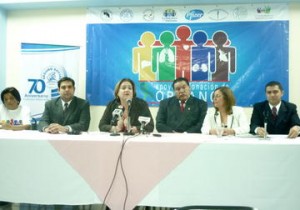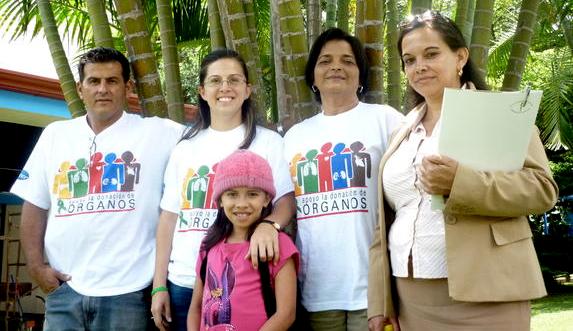San Jose, Costa Rica – They are foreigners, but took to Costa Rica as their home. Thanks to a decision they made, their organs could save the Costa Rican patients. It is of 67,500 foreigners who when they first obtained residency card or renewed their residency to the Directorate of Immigration, responded affirmatively that they wanted to be donors. That decision to be organ donors could benefit ticos 660 waiting for a transplant.
 From 2006 Migration incorporated the question of donation forms.
From 2006 Migration incorporated the question of donation forms.
Among the potential donors is 33,500 women and 34,000 men. Mainly from Nicaragua (73.8%), Colombia (7.4%) and USA (3.2%).
Freddy Montero, Deputy Director of Immigration, said that in general, most foreigners who come here are Nicaraguans.He stressed that, among those willing to donate, most are aged between 31 and 50 years of age.
From 2006 to date, 79,000 users processed for the first time his residence.
According to Montero, consultation with outsiders is based on Article 11 of the Act for permission to transplant organs.
It is the policy requires that during the pendency of their identity, people express if they would be donors when they die. However, the official said, the declaration does not exempt to donate while alive.
“We have established coordination with the Fund and the Ministry of Health to make available this database,” said Montero.
At the same time, said the lack of public policies and information, Costa Rica has very few donors.
“Our rate is three donors per million inhabitants, is extremely low. There are many people who are dying for lack of organs. In other countries such as Uruguay, the rate is 16 per million, and Spain is 40 million, “he said.
According to the Social Security Fund (CCSS), last year killed 22 people awaiting a transplant.
Currently, 492 people waiting for corneas, 126 waiting for a kidney, and 48, a liver. For this information, the Fund had not updated the number of those who need a new heart.
Deputy Director of Immigration reported that starting next month, the institution will send the information of residents interhospital Coordination Office of the CCSS, on donation and transplantation.
That instance was created last summer and its function is to coordinate and oversee such procedures in the country. Previously, each hospital had its separate waiting lists.
Marvin Aguero, transplant coordinator of that coordination office, said the work of Immigration will help raise awareness in others.
He said the international recommendation is to promote cadaveric donation. “When a person has a brain-dead, you can ask your family the gift. Living donors are recommended when there are family ties, “he said.
He stressed that in the case of the deceased, even if a document with your will, the family must also give consent.
Aguero said that for now the coordinating office is preparing guidelines to be followed in this matter.
He emphasized that transplants reduce costs to the country. “For example, a patient needing dialysis invests $ 80,000 annually, if you did a successful transplant would cost $ 30,000.”

